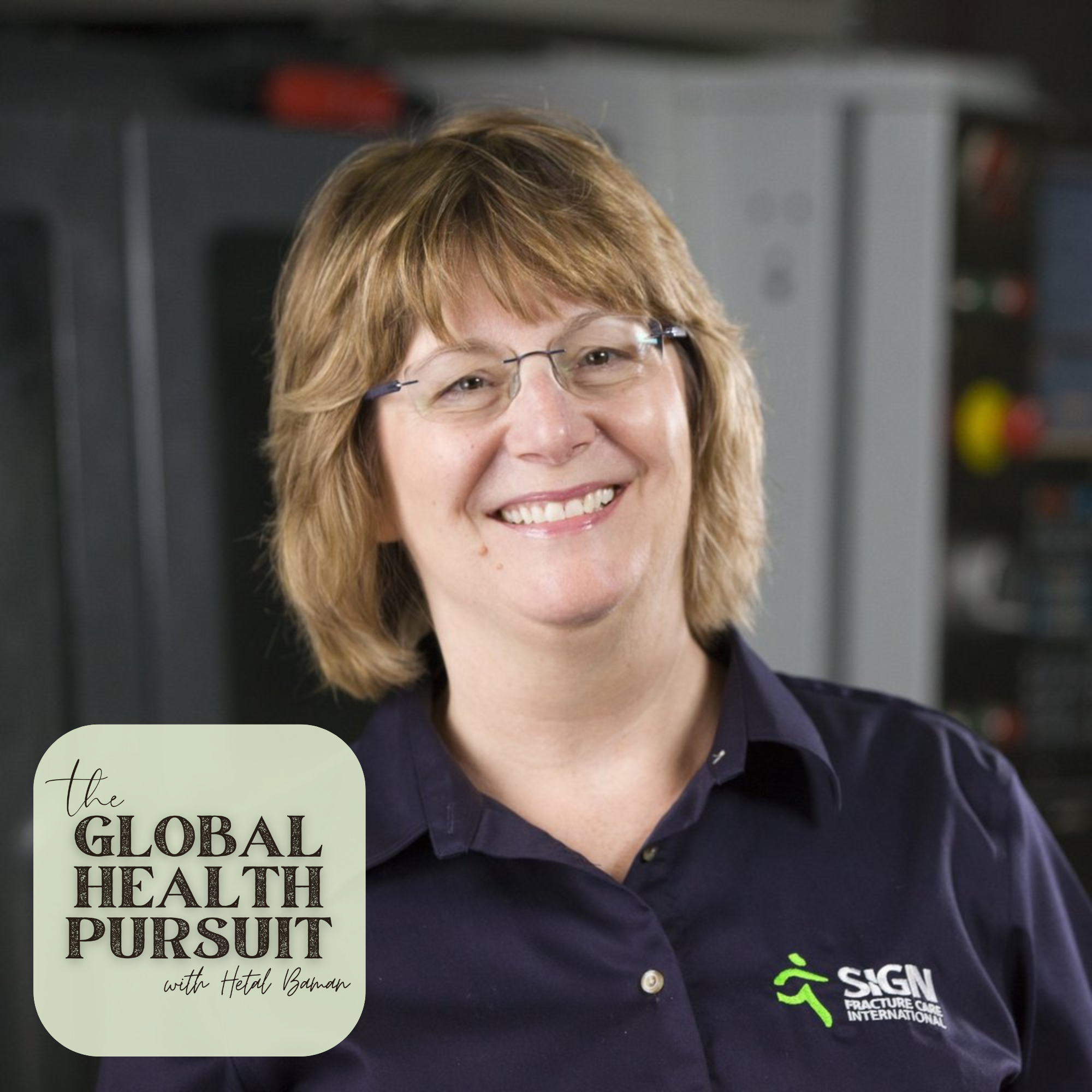15. Revolutionizing Orthopedic Care in Low-Income Countries, Part 2 of 3
Subscribe and listen on Apple Podcasts, Spotify, Google Podcasts, or your favorite platform!
Ever heard of a nonprofit medical device orthopedic company? Enter Sign Fracture Care - nonprofit medical device company that designs and manufactures implants/instrumentation while also providing education to local surgeons in developing countries.
In this episode, we speak with Jeanne Dillner, CEO of Sign Fracture Care, who shares the most valuable lessons she learned from her experience in the medical device industry. Jeanne emphasizes the importance of patient care and the generosity of donors who trust SIGN to use their donations appropriately to help patients in need. She also talks about the growth of SIGN over the years, from relying on outside guidance to hiring experienced staff to improve manufacturing and double their production.
SIGN now has 41 employees and helps at least 30,000 people a year. Sign's mission to provide relevant medical equipment to hospitals in low and middle-income countries has helped over 400,000 injured poor patients access quality orthopedic surgery. The organization's success is a testament to the power of fresh ideas and diverse backgrounds in designing products for the needs of patients in need.
In this Episode, We Cover:
Starting a Nonprofit Medical Device Company: Dr. Zirkle’s decision to hire non-engineers and the steps Sign Fracture Care took to grow as a nonprofit medical device company.
Meeting Dr. Zirkle and Starting Sign Fracture Care: Jeanne Dillner’s first meeting with Dr. Zirkle and how she helped set up Sign Fracture Care as a nonprofit organization.
Designing Relevant Medical Equipment and Training Surgeons: The importance of providing relevant medical equipment and training surgeons in low and middle-income countries, and how Sign Fracture Care has become sustainable and scalable over the years.
Developing Targeting Devices: Jeanne Dillner talks about the challenges they faced in developing targeting devices for their medical devices and how they found a creative engineer to help them.
Choosing Non-Profit over For-Profit: Dillner explains why Dr. Circle chose to make Sign Fracture Care International a non-profit organization and the challenges they faced in fundraising.
The Sign Fracture Care International Team: Dillner talks about the early team members of Sign Fracture Care International, their backgrounds, and how they worked together to achieve their goals.
Patient Care and Global Giving: Jeanne Dillner talks about the importance of patient care and the impact of global giving on communities in Africa and Asia.
Improving Manufacturing and Growth: Jeanne Dillner discusses the growth of Sign Fracture Care International and the importance of improving manufacturing to meet the increasing demand for their products.
Moving Away from Colonialism: Jeanne Dillner talks about the importance of moving away from a colonialist mindset and giving a more direct voice to the side surgeons in Sign's leadership.
Who is Jeanne Dillner?
Jeanne Dillner started her career as a CPA after graduating from Portland State University. She found her true vocation when she accepted the position of CEO for SIGN Fracture Care International (SIGN). She joined Lewis Zirkle, SIGN founder and orthopaedic surgeon, in 1999 to create this one-of-a-kind humanitarian organization that is responsible for giving more than 400,000 injured poor patients access to US quality orthopaedic surgery. She credits her work with the International Atomic Energy Agency Office at the United Nations for giving her the foundational skillset to lead the SIGN team’s groundbreaking efforts to equip surgeons in almost 60 low and middle income countries with education and implants.
Jeanne traveled regularly with Dr. Zirkle to provide training to surgeons in Africa, Asia, and Central America then spearheaded the pivot to webinars and video education during the pandemic. Her role has also taken her to Indonesia, Pakistan, Haiti, and Nepal to aid in disaster response efforts after these countries experienced devastating earthquakes.
In June, she, Dr. Zirkle, staff and board members will travel to Tanzania to attend a regional SIGN Conference, work with SIGN Surgeons in their home hospitals, and visit the site of the future SIGN Spine Program at MOI.
Her day to day is filled with traditional nonprofit CEO responsibilities including working with the board and donors. However at SIGN, it’s equally critical for her to continue working with the manufacturing, engineering, shipping and education teams to continually provide the best treatment options and training for the over 400 programs we serve worldwide.

